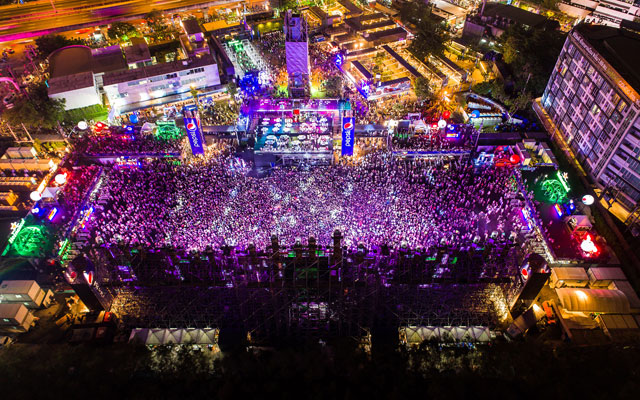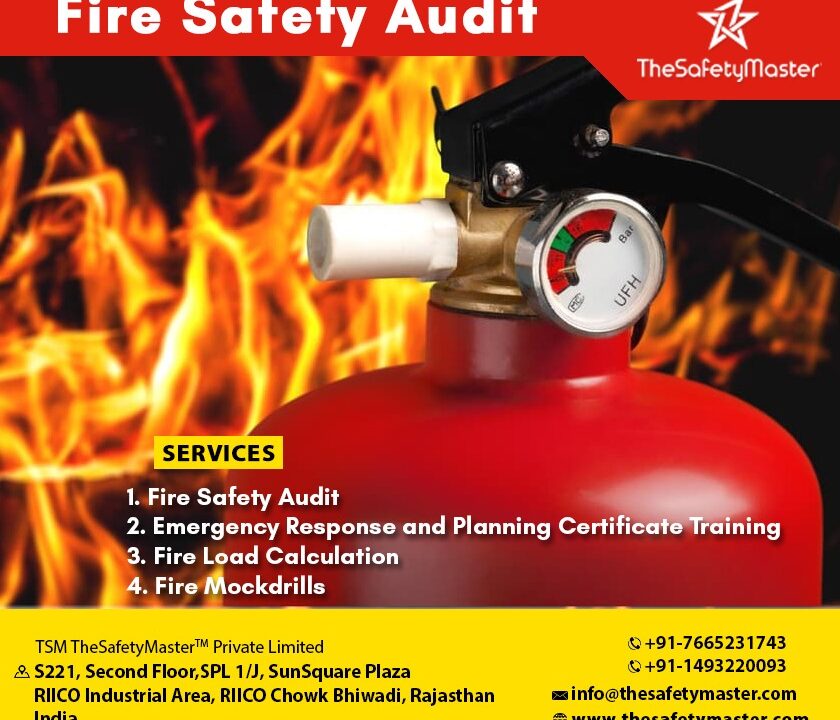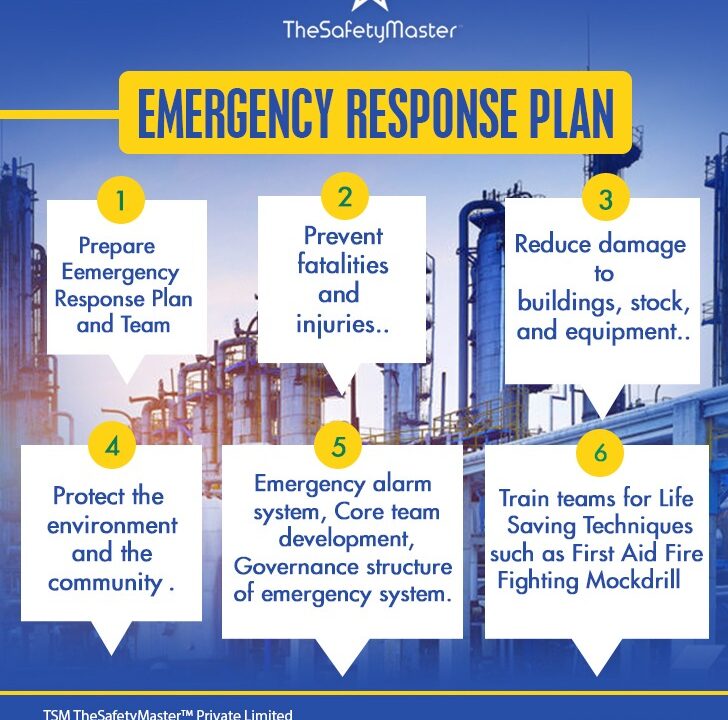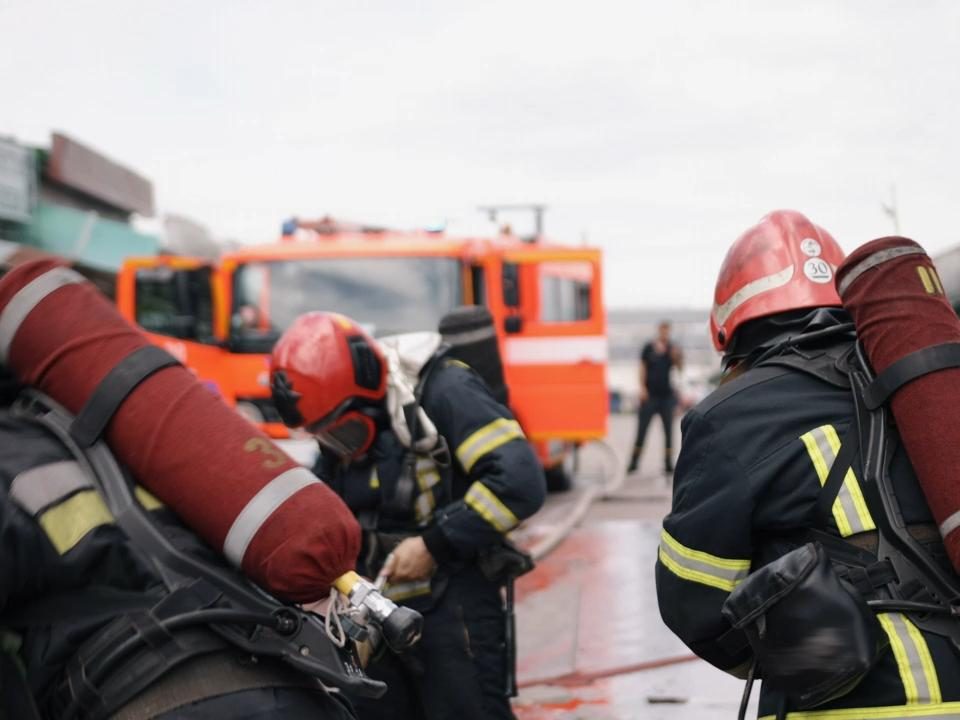Why Every Event Site Needs a Comprehensive Safety Audit

Enhancing Fire Safety: The Importance of Conducting a Thorough Fire Risk Assessment and The Safety Master as Your Trusted Fire Safety Consultant
June 14, 2023
The Top Causes of Fire in Air Conditioners: What You Need to Know
June 14, 2023Why Every Event Site Needs a Comprehensive Safety Audit
In this article, we will delve into the importance of a comprehensive safety audit for event sites. With safety becoming an increasing concern in today’s society, event organizers cannot afford to forego proper safety measures. We’ll discuss the potential hazards and risks of inadequate safety measures and what steps can be taken to mitigate them. By the end of this article, readers can expect to have a clear understanding of why a safety audit is an absolute necessity for event sites. Don’t leave the safety of your attendees to chance – let us help you guarantee a safe and successful event.
Introduction
Events are a time of excitement and celebration. Whether it’s a concert, festival, or trade show, there is always something to look forward to. However, amidst all the fun, event organizers can often overlook an important aspect – safety. For any event site, the safety of attendees should be the top priority. Neglecting this can lead to disastrous consequences. In this article, we will discuss the importance of conducting comprehensive safety audits for event sites. We will explore why they are essential and how they can help prevent accidents and injuries from occurring. By the end of this article, you will have a better understanding of what is involved in a safety audit and why it’s crucial for every event site to conduct one
Understanding Safety Audits
Understanding Safety Audits:Safety audits are an essential component of risk management for event sites, ensuring compliance with standards and regulations. They involve a comprehensive assessment of the facilities, equipment, procedures and protocols used for events to identify potential hazards that may affect the safety and well-being of attendees.
The goal of safety audits is to identify potential risks, assess their severity and likelihood, develop strategies to mitigate them and implement measures to ensure the safety of all people at the event. The audit process includes conducting a thorough review of all aspects related to health and safety that may pose a risk or threaten attendee welfare.
Importance of Safety Audits for Event Sites
Safety audits are critical to the success of any event site. Events are dynamic and complex environments, and safety risks can present themselves in a variety of ways. From potential hazards to attendees, to risks associated with equipment or structures, it’s essential to take every precaution necessary to ensure the safety of everyone involved.A comprehensive safety audit provides a detailed analysis of all aspects of an event site’s safety protocols. This includes reviewing emergency procedures, identifying potential hazards, assessing risk management strategies, and evaluating compliance with local regulations and industry standards. With a thorough understanding of these factors, event organizers can make informed decisions that prioritize the safety and well-being of all attendees.
Risks of Neglecting Safety Audits
Neglecting safety audits can be a costly and even deadly mistake for event sites. Without proper safety measures in place, event attendees and employees are at risk of injury or harm. Furthermore, failing to conduct a comprehensive safety audit can lead to legal liabilities, reputational damage, and financial losses.In the absence of safety audits, organizers may overlook potential hazards such as structural deficiencies or inadequate emergency response plans. This could result in accidents that cause physical harm or property damage. Not only that but in case of an incident, the lack of proper documentation of safety measures could result in significant legal consequences for the organizers.
Elements of a Comprehensive Safety Audit
Elements of a Comprehensive Safety Audit:A comprehensive safety audit is essential for ensuring the safety and security of attendees at any event site. An effective safety audit should include a detailed assessment of all potential hazards, including physical risks such as structural integrity, fire hazards, and crowd management, as well as security risks such as terrorism threats and criminal activity.
The audit should also consider the unique needs and requirements of specific events. For example, an outdoor music festival will have different safety concerns than a corporate conference held indoors. The auditor should examine all areas of the event site and identify potential problems that could arise during the event.
Key Areas for Safety Audit Focus
Event sites are complex environments that require a comprehensive approach to safety. A thorough safety audit must cover every aspect of the event site, including the physical space, equipment, and personnel. Here are some key areas to focus on when conducting a safety audit: 1. Crowd Management: Managing crowds is crucial for events as they can quickly turn unruly and pose significant risks to everyone involved. A good crowd management plan includes assessing venue capacity, the number of attendees per square foot, evacuation routes, and emergency procedures.
2. Electrical Systems: Event sites require extensive electrical setups for lighting, sound systems, and other equipment. Electrical hazards pose a significant danger to both attendees and staff; therefore, it is critical to ensure that all electrical systems comply with safety codes.
3. Fire Safety: Fire poses one of the most significant risks at event sites due to crowds and limited egress points in an emergency situation. A comprehensive fire safety audit must assess fire alarms, sprinkler systems, fire extinguishers’ placement and accessibility.
4. Security Measures: Events attract large numbers of people making them a target for criminal activity or even terrorism threats. Event organizers must consider implementing security measures such as bag checks at entry points or installing surveillance cameras in sensitive areas.
5. Sanitation: With many people in close proximity at events comes the risk of disease transmission through unsanitary conditions such as overcrowded restrooms or contaminated food stations.
An effective safety audit must cover all these areas exhaustively to ensure that an event site is prepared for any potential danger that may arise during an event.
Collaborating with Safety Professionals
Collaborating with Safety Professionals:When it comes to safety, there is no room for error. That’s why event sites need to collaborate with safety professionals when conducting safety audits. Safety professionals are trained and experienced in identifying hazards and implementing solutions that will mitigate risks, ensuring the safety of everyone involved in an event.
Working with a team of experts means that all aspects of an event site can be thoroughly evaluated. Safety professionals can identify hidden risks and offer recommendations on how to improve safety measures. Their objective evaluation can bring a fresh perspective to hazard identification, making sure every area of concern is addressed.
Building Trust with Clients and Attendees
Building Trust with Clients and Attendees:A comprehensive safety audit isn’t just about following rules and regulations, it’s also about building trust with your clients and event attendees. When you prioritize safety at your event site, you send a clear message that you care about the wellbeing of everyone present. This can help establish a positive reputation for your business, leading to increased loyalty from returning clients and a higher level of confidence from new ones.
To truly build trust with those attending your events, it’s important to go beyond simply conducting regular safety audits. Make sure all attendees are educated on emergency procedures and evacuation routes so they feel secure in the event of an emergency. Additionally, consider offering training sessions for security personnel or other staff members so everyone is prepared to handle any potential threats or crises.
Conclusion
As we conclude this article, it’s clear that safety is paramount for event sites. A comprehensive safety audit is not just a legal requirement but also a moral obligation to ensure the well-being of everyone involved. Neglecting safety audits can lead to serious consequences, including injuries and litigation. By focusing on the key areas of safety audit and collaborating with professionals in the field, event sites can earn the trust of their clients and attendees, providing them with peace of mind and an enjoyable experience.
At TSM TheSafetyMaster Private Limited we offer following services
TSM TheSafetyMaster® Private Limited
Unit No 221-451-452, SPL1/J, 2nd & 4th Floor, Sunsquare Plaza Complex, RIICO Chowk, Bhiwadi 301019, Rajasthan, India
Phone: +91 1493 22 0093
Mobile: +91 7665231743/9413882016
Email: info@thesafetymaster.com




